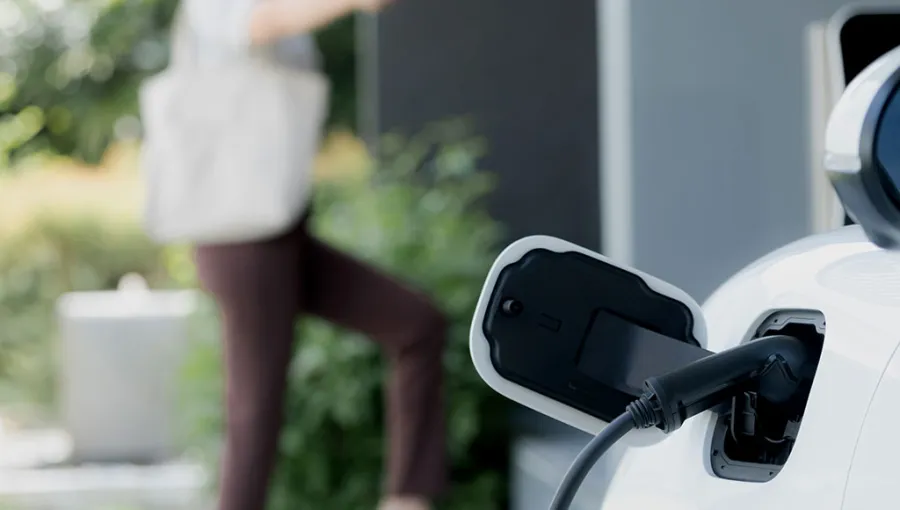As the world embraces a more sustainable future, electric vehicles (EVs) are becoming increasingly popular. However, one question that often arises is, “What does it cost to install an electric car charger?” Installing a charging station at home can vary in cost depending on several factors. In this comprehensive guide, we will explore the various aspects of installing an electric car charger, what influences the cost, and provide valuable insights for EV enthusiasts.
Understanding the Basics
What Does It Cost To Install An Electric Car Charger: An Overview
To begin, let’s delve into the basics of electric car charger installation. When you decide to switch to an electric vehicle, one of the first considerations is the convenience of home charging. While many electric car owners rely on public charging stations, having a charger at home can offer numerous advantages.
The Importance of Home Charging
Home charging provides the convenience of refueling your car overnight, avoiding long queues at public charging stations. It also allows you to take advantage of off-peak electricity rates, which can significantly reduce your charging costs over time.
Factors Influencing Installation Costs
Several factors come into play when determining the cost of electric car charger installation:
- Charger Type: There are different types of chargers available, including Level 1, Level 2, and DC fast chargers. Level 1 chargers are the most basic and typically the least expensive, while DC fast chargers can be significantly pricier due to their high power output.
- Charger Location: The location of the charger installation greatly affects the cost. Installing a charger in your garage or on an exterior wall of your house is usually more affordable than underground installations or long cable runs.
- Electrical Panel Upgrades: In some cases, your existing electrical panel may need to be upgraded to handle the additional load from the charger. This can add to the installation cost.
- Permitting and Inspection: Depending on your local regulations, you may need permits for the installation, and inspections may be required, which can incur additional costs.
- Labor Costs: Labor costs for installation can vary based on location and the complexity of the installation. Hiring a licensed electrician is crucial to ensure the work is done safely and up to code.
- Charger Brand and Features: The brand and features of the charger you choose can impact the cost. Some chargers come with additional features like Wi-Fi connectivity or smart charging capabilities, which can add to the price.
- Government Incentives: Depending on your location, you may be eligible for government incentives or rebates that can offset a portion of the installation cost.
- Cable Length: The length of the cable needed to connect the charger to your electrical panel or the car can affect the cost, as longer cables require more materials and labor.
Average Installation Costs
The cost of installing an electric car charger can vary widely, but on average, you can expect to pay between $300 and $3,000. Here’s a breakdown of these costs based on the factors mentioned:
- Level 1 Charger: $300 – $600
- Level 2 Charger: $600 – $1,200
- DC Fast Charger: $1,000 – $3,000 or more
Additional costs, such as electrical panel upgrades or extensive cable runs, can push the total cost toward the higher end of these ranges.
How to Save on Installation Costs
Taking Advantage of Incentives
To offset installation costs, consider researching available incentives and rebates. Many governments and utility companies offer financial incentives to encourage EV adoption. These incentives can significantly reduce your overall investment in a home charger.
DIY vs. Professional Installation
While some experienced individuals may choose to install a charger themselves, it’s highly recommended to hire a licensed electrician for safety and compliance reasons. However, if you are skilled in electrical work, you can save on labor costs by doing some of the preparatory work yourself.
Plan for the Future
When installing a charger, it’s a good idea to plan for the future. Consider the growth of your EV fleet and whether your current charger can accommodate multiple vehicles. Investing in a more powerful charger or infrastructure now can save you money in the long run.
Conclusion
In conclusion, the cost of installing an electric car charger can vary significantly depending on various factors, including the charger type, location, and additional upgrades required. However, with government incentives and careful planning, you can make the transition to electric vehicles more cost-effective. Home charging not only enhances convenience but also contributes to a cleaner and more sustainable future. So, when you ask, “What does it cost to install an electric car charger?” remember that the benefits of home charging go beyond cost savings – they include environmental, convenience, and long-term advantages.
